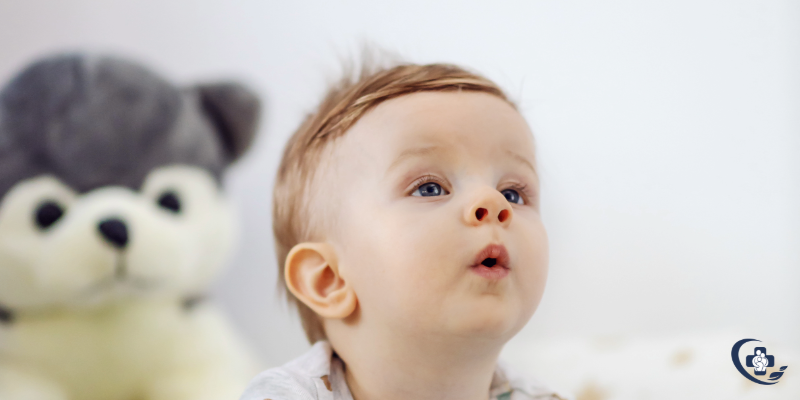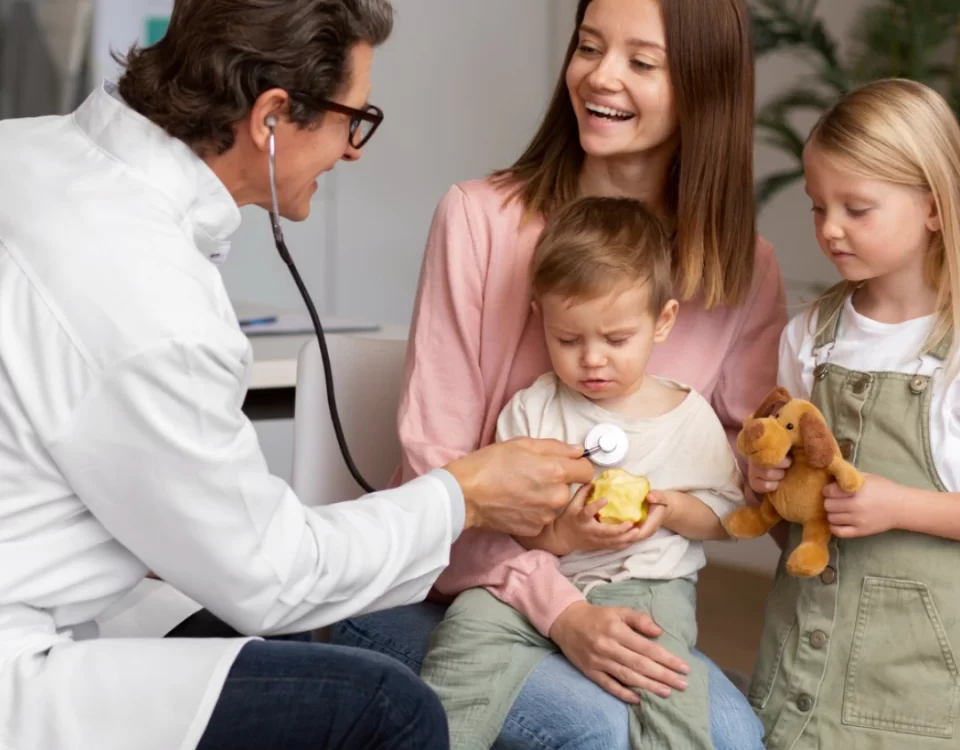
10 Baby Safety Tips Every Parent Should Know
September 6, 2021
Quarantining a Child Exposed to COVID-19
November 19, 2021The month of October is Sudden Infant Death Syndrome (SIDS) Month. SIDS is defined as the sudden and unexplained death of an infant younger than one-year-old. Another term for SIDS is known as “crib death’ due to the fact that the majority of SIDS deaths are associated with sleep.
SIDS Risks
There is no single thing that can be more at risk for SIDS, but rather a combination of risk factors that can cause such a tragedy. SIDS death in infants is most common to happen between 2-4 months old. SIDS cases are also known to rise during the colder months, and male infants are more likely to fall victim to SIDS than female infants. Some more risk factors include:
- Poor prenatal care
- Prematurity
- Smoking, drinking, or drug use during pregnancy
- History of SIDS in the family
- Mothers younger than 20 years of age
- Exposing an infant to second-hand smoke after birth
- Overheating
It is important to note that a SIDS diagnosis typically comes after all other causes of death have been ruled out. This form of diagnosis helps tell actual SIDS deaths from other causes of death such as abuse, accidents, and undiagnosed conditions, etc.
SIDS Prevention
Although research tells us that SIDS is the leading cause of death among newborns from 1-month-old to 1-year-old, it remains highly unpredictable. The unpredictability and lack of answers are what make SIDS so frightening for parents. Despite the uncertainty behind SIDS, there are measures parents in efforts to prevent SIDS. According to the Safe to Sleep campaign, these are the preventative measures parents should take when preventing SIDS:
- Receive prenatal care early on in pregnancy and throughout your pregnancy.
- NEVER place your newborn on a pillow, couch, chair, or soft surface. Your baby should only be placed on a firm mattress to sleep.
- It would be best to cover your baby’s mattress with a fitted sheet ONLY, no other bedding. Soft objects such as plush toys and other blankets should also be kept out of your infant’s sleeping area.
- Bumper pads should NEVER be placed in a crib as they are considered a strangulation or suffocation hazard.
- Rather than bed-sharing, practice room-sharing instead. Experts recommend that newborns sleep in the same room as their parents, but not the same bed. Either a bassinet or a crib next to the bed will be the safest option. This should go on until the infant’s first birthday or at least for the first six months when there is a higher risk of SIDS.
- Breastfeeding, if possible, has been proven to reduce the risk of SIDS.
- Have your newborn sleep with a pacifier for the first year; however, if they reject it, do NOT force it. If your baby’s pacifier falls out while they are asleep, you do not have to replace it.
- Check your baby’s temperature while they are sleeping and assure that they do not get too warm. Watch for signs of overheating, such as; sweating or feeling hot to the touch.
- Do NOT smoke during pregnancy or after birth. Research shows that infants of mothers who smoked during pregnancy are more at risk of SIDS than infants with non-smoking mothers. Exposing an infant to second-hand smoke after birth can also raise the risk of SIDS.
- Do NOT use alcohol or drugs during or after pregnancy. Parents who use drugs or alcohol should NEVER sleep with their children.
- Assure that your baby receives all of their immunizations. Studies show that infants who received their necessary immunizations have a 50% lower risk of SIDS.
SIDS is heartbreaking and life-changing for parents and families who have experienced it. If you have experienced a SIDS death, groups such as; First Candle can provide grief counseling, referrals, and support.





